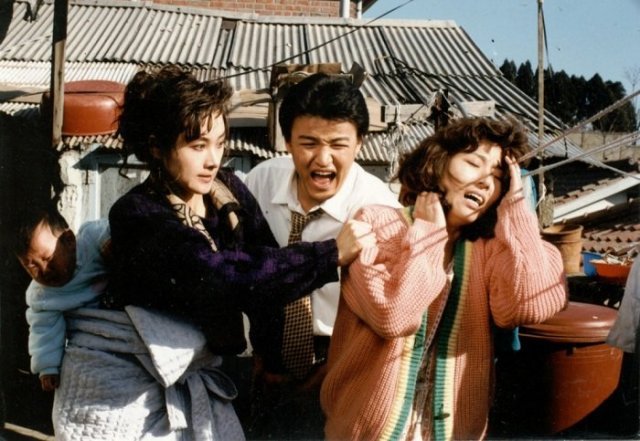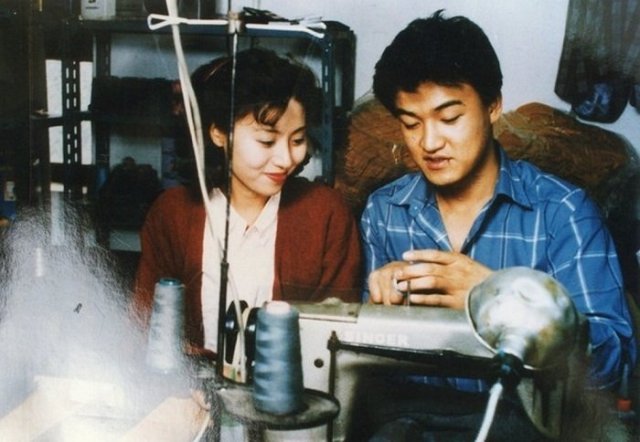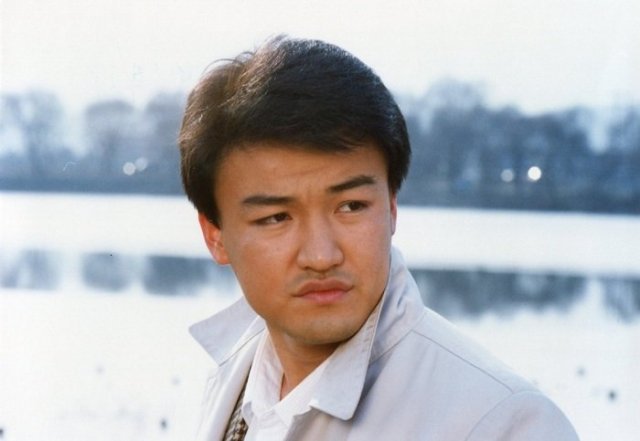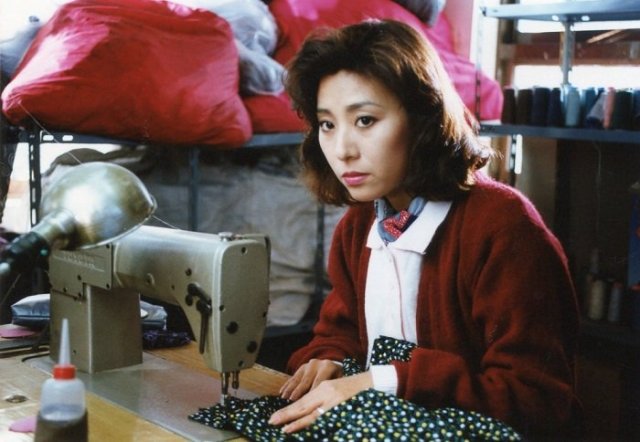Korea.net's list of must-see films: A Short Love Affair

A Short Love Affair (1990)
Directed by Jang Seon-woo
Long unemployed, IlDo, played byPark Joong-hoon, lands a job at a factory that makes skirts. IlDo and his family move to be closer to his workplace, in Umukbaemi, on the outskirts between Seoul and Gyeonggi Province. At the factory, chemistry develops between IlDo and GongRye, a colleague sitting next to him. Having long suffered from her husband's abusive violence, GongRye is also attracted to the warmth of IlDo.
On his first payday, the two decide to go on an overnight train trip. They spend a night together in Seoul. After they come back, they continue their secret, passionate love affair in Umukbaemi. Once their romance is revealed, the two choose to leave town, heading for Seoul to live together. Upset by jealousy and by his betrayal, IlDo's wife, played byYoo Hye-ri, after many attempts and many struggles, finds out where they live. As she drags him back home, IlDo and GongRye become separated. GongRye makes up her mind that she will give up everything. GongRye meets IlDo to say goodbye.
Comments by Park Hye-young, film researcher at the Korean Film Archive
In the 1990s, director Jang Seon-Woo was standing at the center of a dispute. Many concepts and themes that he presented throughout his films were quite different from that of the 1980s. I can't easily define him as a cinéaste who has lived a life ahead of his times. However, I do think we need to pose questions in the present tense about the sentiment and the air of the time he captured on film, and about his surprising breakaway from typical film formats.
Jang's third full-length feature, "A Short Love Affair" began production in 1989 and was released in 1990. The year 1989 is remembered among left-wing activists, including Jang, as a "year of shocks". At the end of the year, the Berlin Wall collapsed and socialism slowly faded away under the stronger influences of capitalism. The 1990s began where all the dreams and hopes from the '80s crumbled. The passionate dreams and hopes they cherished in their hearts were about achieving democracy, social ideals, national economic development and, what's beyond all that, capitalism.
This movie, "A Short Love Affair", was produced and released at this time of social division. It introduced a new form of realism, sticking more to the lives of the common people and traditional characteristics of the genre. It can be compared to traditional realism, supported by popular movements. This film has been described as something that opened a new era in cinema.
Among Jang's works, "A Short Love Affair" seemed to have been written during his personal transitional phase. The film depicts melodrama, featuring the lives, laughs and humor of common people in a remote village. It focuses more on the agony and acrimony of the people than on the political realism to which he used to be attracted.
The film is a partial reinterpretation of a famous novel, "Wangrung Family" (unofficial translation). The town setting of Umukbaemi, the region also featured in the novel, encapsulates the main theme of the movie. In the novel, Umukbaemi is originally described as a small town near Gimpo, while in the film it's depicted as a region of Gyeonggi Province about to be targeted by the ever-expanding urban sprawl.
In the midst of the rise of unbalanced development and illegal land speculation, ordinary people with no money are forced to move to the outskirts of the metropolis. Umukbaemi is a place riddled with the competitive struggles of life, unbalanced development and a huge gap between the rich and the poor. At the same time, it is a place where people gather who want to escape the poor village. In addition, it is where IlDo and GongRye secretly share their love. It is the living foundation for many people who were forced out, but who help each other to create new hope for themselves.
A love affair between those who cannot help but take this path through reality seems to be romantic, but it is not acceptable under society's rules and regulations. On the day they find out that they are falling in love with each other for the first time, the two run away, as far as possible, by taking a night train and while avoiding the public gaze. Even after arriving in Seoul, they take a taxi, trying to find a safe place in the urban sprawl, just as they used to meet up at a trackless greenhouse in the countryside. The more secrets they keep, the more they feel desperate for each other. They become more mournful because they are not allowed to do so according to social norms.
For GongRye, the love affair is an escape from her husband, Park Seok-hee; from his economic inability as well as from his outdated patriarchal concepts. For IlDo, at the same time, it means he must run away from his wife, the mother of JiHo, a woman who always brings him back to reality. The love affair is only possible on the byway, in the brief intersections of life. They keep struggling to find an escape from reality, a love affair, within which they try to enjoy happiness and dream of a fantasy about which they are not allowed to dream.
Meanwhile, IlDo's wife reminds us of ordinary people's struggles to live and to survive life's hardships, and, ultimately, instills in the film more liveliness and more realistic elements.
The director's warm perspective, to see the "naked lives" of his characters, makes an impression, too. It must have been largely influenced by the humor and conversational power found in the original novel. Director Jang, however, increases the visual and acoustic effects by the appropriate use of images that make comparisons between the city and the countryside, and by using music that combines the old and the new. With the use of such cinematic skill, the film concentrates on depicting the grief and the dynamism of life.
The outstanding contrast between the landscape of the city and the countryside was well created by cinematographer Yoo Yeong-Gil in an early scene where we look through the window of the train that IlDo's family is taking to Umukbaemi from the city. The camera begins by casting its gaze on a crowded skyline of high-rises, apartment buildings and jam-packed roads. The landscape then slowly changes to show us construction sites in the countryside and the many dug-out, partly developed pieces of farmland.
To people with nothing, the scene would be cruel and harsh. The sweatshop workers who have to operate machinery all day should be exhausted. Even during this hardship, the people of Umukbaemi are full of life. They forget about their intense work schedule when they sing a song together. They burst into laughter when they sit on a floor to have a drink. The use of traditional jajinmori music during a scene where IlDo's wife takes her husband home by force is well harmonized, adding to the tension.
Such a format cannot be found in other works of Jang later in his career. "A Short Love Affair" must have been his final work, to finish the 1980s, and a new milestone was thus created in the history of cinematic realism.
*This series of articles has been made possible through the cooperation of the Korean Film Archive.
*Clickhereto see previous parts of our series of Korea.net's must-see films.
Source from :Hancinema



